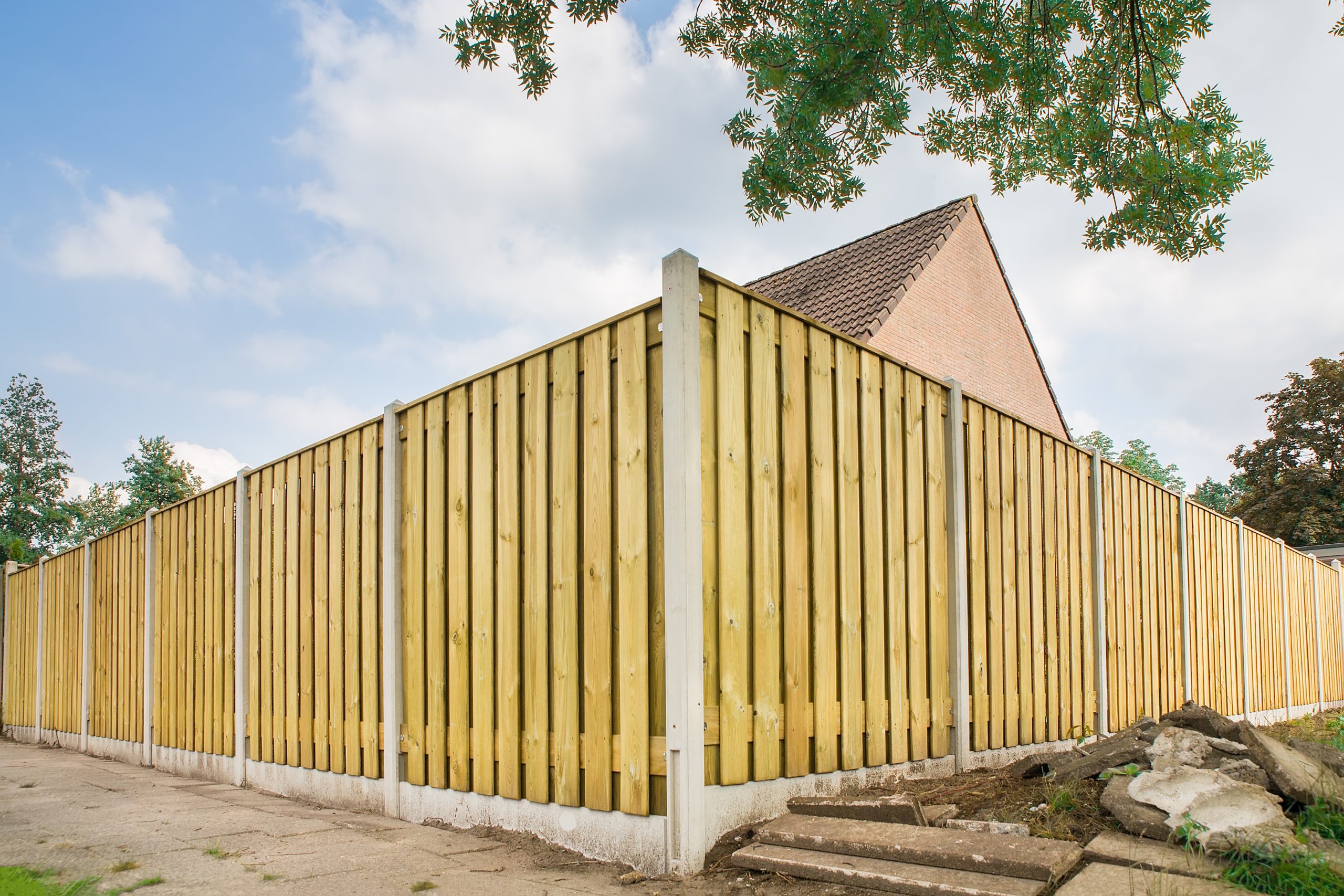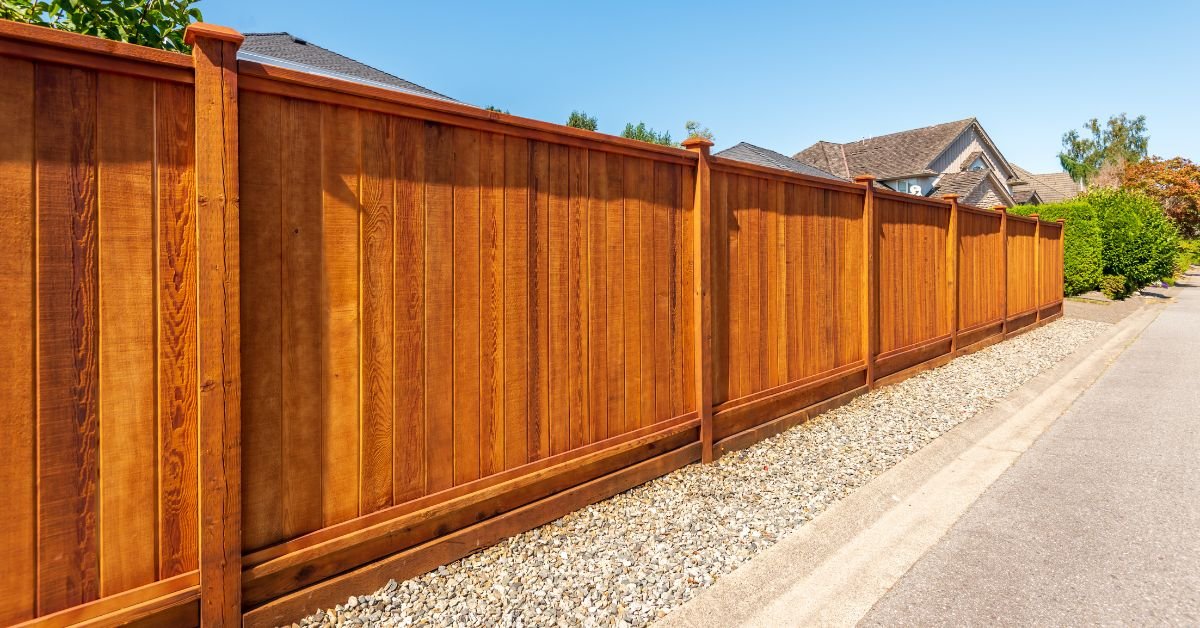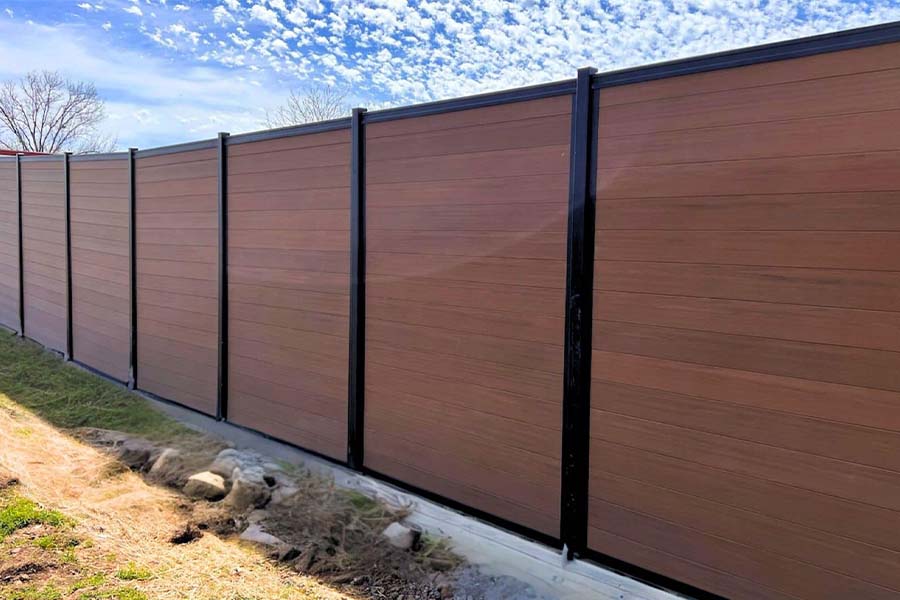All Categories
Featured
Comprehending the authorization demands in your location is crucial if you're taking into consideration mounting a fence around your residential or commercial property. While constructing a fence could look like a simple DIY job, numerous policies might regulate its construction depending upon where you live. Falling short to obtain the proper licenses can bring about penalties, penalties, and even having to remove the fence entirely. In this overview, we'll damage down the various permits you might need to install a fencing and exactly how to ensure your job stays compliant with neighborhood legislations.
Why Are Permits Necessary for Fencing Setup? Licenses are needed to guarantee that the fence you construct adheres to neighborhood structure codes, zoning laws, and safety and security standards. They make sure that the fence will not obstruct energies, traffic flow, or develop hazards for pedestrians.
![]()
Kinds of Permits You May Demand. Structure License. A building permit is the most common need for setting up a fence. This permit makes sure that the framework you develop complies with neighborhood safety and security codes and regulations. If your fencing surpasses a specific height (typically around 6 feet), you may require to acquire a structure authorization. The neighborhood authorities will usually assess your strategies to make certain that your fence is secure and structurally audio.
Zoning Authorization. A zoning license guarantees that your fencing abides with these laws. Your fencing could require to be set back a certain distance from walkways or building lines.
Homeowners Organization (HOA) Authorization. If your residential property is component of a property owners association, you may require authorization before mounting a fencing. HOAs often have strict policies concerning the kind, design, and materials utilized for fences to keep an uniform appearance throughout the area.
Specialized Permits. Sometimes, you might require specialized permits based on the place of your residential property or the nature of your fence. For instance, if your property is in a flooding zone, you may require added permits to guarantee that your fencing does not block drainage or water flow. In a similar way, if you prepare to construct a fence near an eco safeguarded area, you might need a special license to follow ecological regulations.
![]()
Utility Easements and Utility Business Approvals. Some residential or commercial properties have utility easements, which are locations marked for energy cables, lines, or pipelines. Prior to mounting a fencing, you have to examine if your residential property has an easement. Constructing a fencing within an easement could hinder utility maintenance or damage underground lines. You may need approval from the utility firm or local authorities prior to waging the installment.
Just How to Establish Which Permits You Need. Get In Touch With Regional Authorities. The initial action in determining the permits needed is to contact your regional structure division or zoning office. They can offer specific information about what licenses are necessary for your area. Numerous cities have on-line sources or portals where you can inspect the needs and even make an application for a license online.
Consult a Specialist Fence Service Provider. A local fence service provider is typically acquainted with the license procedure and neighborhood regulations. They can assist you browse the requirements and make sure that your task is compliant. Numerous service providers additionally manage the authorization application process on your part, saving you effort and time.
Evaluation Your Community's HOA Guidelines. If you reside in a neighborhood controlled by an HOA, make certain to evaluate their standards prior to getting any type of licenses. The HOA may call for certain styles, products, or elevation constraints for fences within the neighborhood. Submit your strategies to them for approval prior to proceeding.
![]()
Repercussions of Not Acquiring a Permit. Installing a fencing without the needed authorizations can lead to significant repercussions. Prospective customers may be reluctant to purchase a home with an unpermitted fence, particularly if it's in infraction of zoning regulations.
Verdict. Prior to setting up a fencing on your residential or commercial property, make sure you recognize the local guidelines and get any necessary permits. Building permits, zoning permits, HOA authorizations, and specialized allows all play an important function in guaranteeing that your fence is secure, legal, and compliant.
Why Are Permits Necessary for Fencing Setup? Licenses are needed to guarantee that the fence you construct adheres to neighborhood structure codes, zoning laws, and safety and security standards. They make sure that the fence will not obstruct energies, traffic flow, or develop hazards for pedestrians.

Kinds of Permits You May Demand. Structure License. A building permit is the most common need for setting up a fence. This permit makes sure that the framework you develop complies with neighborhood safety and security codes and regulations. If your fencing surpasses a specific height (typically around 6 feet), you may require to acquire a structure authorization. The neighborhood authorities will usually assess your strategies to make certain that your fence is secure and structurally audio.
Zoning Authorization. A zoning license guarantees that your fencing abides with these laws. Your fencing could require to be set back a certain distance from walkways or building lines.
Homeowners Organization (HOA) Authorization. If your residential property is component of a property owners association, you may require authorization before mounting a fencing. HOAs often have strict policies concerning the kind, design, and materials utilized for fences to keep an uniform appearance throughout the area.
Specialized Permits. Sometimes, you might require specialized permits based on the place of your residential property or the nature of your fence. For instance, if your property is in a flooding zone, you may require added permits to guarantee that your fencing does not block drainage or water flow. In a similar way, if you prepare to construct a fence near an eco safeguarded area, you might need a special license to follow ecological regulations.

Utility Easements and Utility Business Approvals. Some residential or commercial properties have utility easements, which are locations marked for energy cables, lines, or pipelines. Prior to mounting a fencing, you have to examine if your residential property has an easement. Constructing a fencing within an easement could hinder utility maintenance or damage underground lines. You may need approval from the utility firm or local authorities prior to waging the installment.
Just How to Establish Which Permits You Need. Get In Touch With Regional Authorities. The initial action in determining the permits needed is to contact your regional structure division or zoning office. They can offer specific information about what licenses are necessary for your area. Numerous cities have on-line sources or portals where you can inspect the needs and even make an application for a license online.
Consult a Specialist Fence Service Provider. A local fence service provider is typically acquainted with the license procedure and neighborhood regulations. They can assist you browse the requirements and make sure that your task is compliant. Numerous service providers additionally manage the authorization application process on your part, saving you effort and time.
Evaluation Your Community's HOA Guidelines. If you reside in a neighborhood controlled by an HOA, make certain to evaluate their standards prior to getting any type of licenses. The HOA may call for certain styles, products, or elevation constraints for fences within the neighborhood. Submit your strategies to them for approval prior to proceeding.

Repercussions of Not Acquiring a Permit. Installing a fencing without the needed authorizations can lead to significant repercussions. Prospective customers may be reluctant to purchase a home with an unpermitted fence, particularly if it's in infraction of zoning regulations.
Verdict. Prior to setting up a fencing on your residential or commercial property, make sure you recognize the local guidelines and get any necessary permits. Building permits, zoning permits, HOA authorizations, and specialized allows all play an important function in guaranteeing that your fence is secure, legal, and compliant.
Latest Posts
Encouraging Youth with WyHy's Monetary Tools
Published Apr 22, 25
1 min read
Cost Effective Luxury: Discover the Advantages of Laminate Flooring
Published Apr 21, 25
1 min read
Simple And Easy Coin Conversion with Coinstar and WyHy Federal Credit Rating Union
Published Apr 21, 25
1 min read
More
Latest Posts
Encouraging Youth with WyHy's Monetary Tools
Published Apr 22, 25
1 min read
Cost Effective Luxury: Discover the Advantages of Laminate Flooring
Published Apr 21, 25
1 min read
Simple And Easy Coin Conversion with Coinstar and WyHy Federal Credit Rating Union
Published Apr 21, 25
1 min read